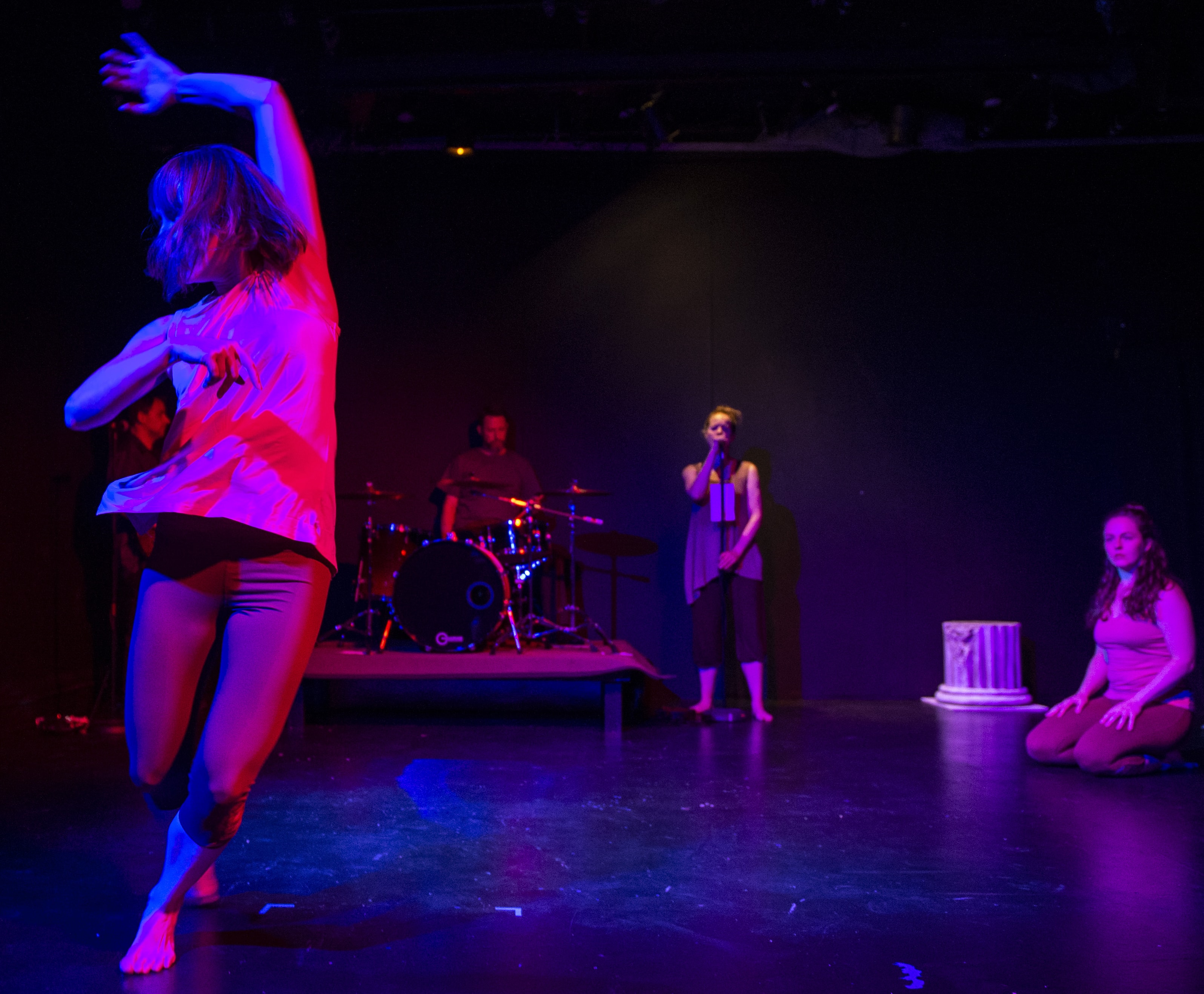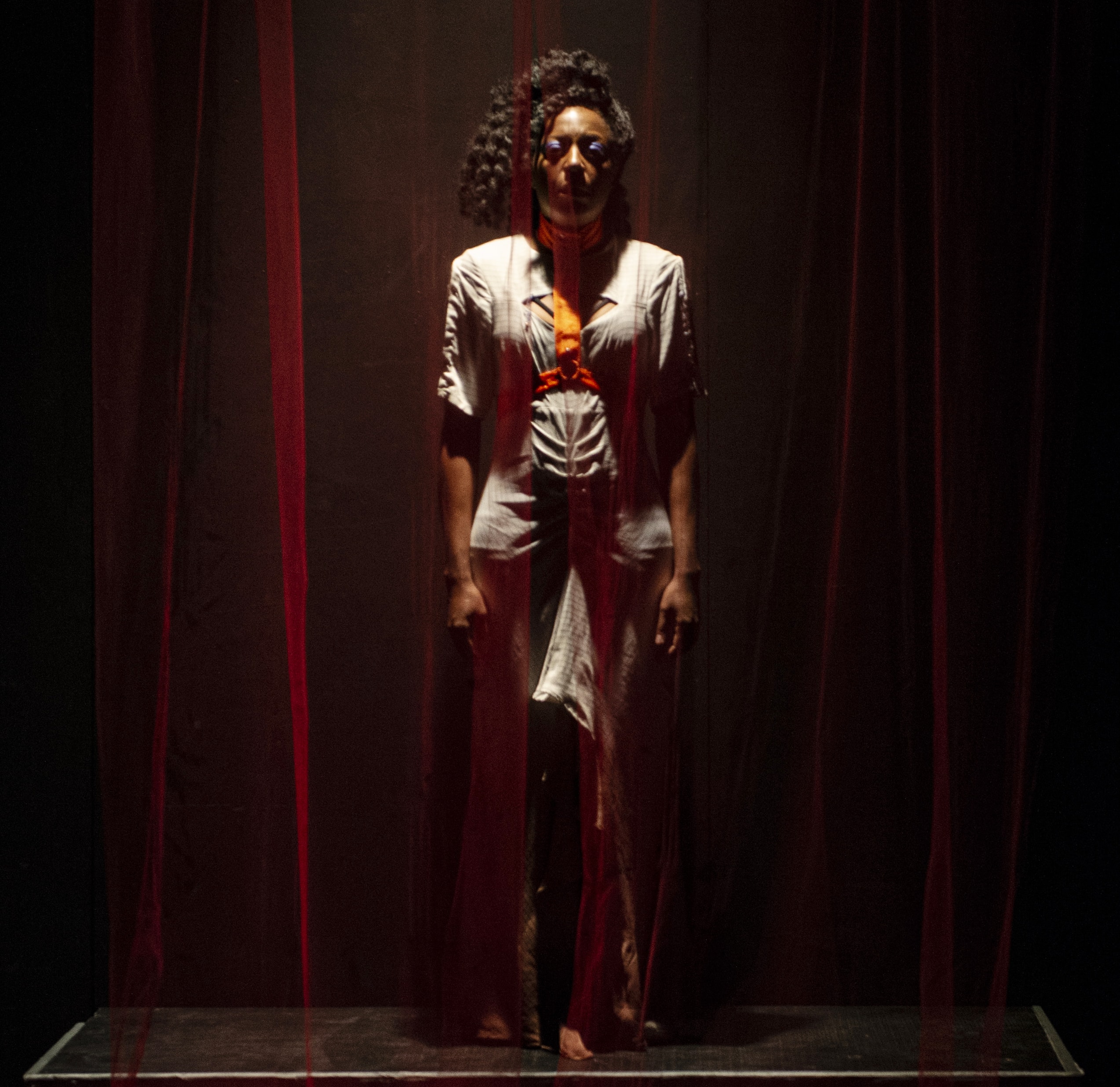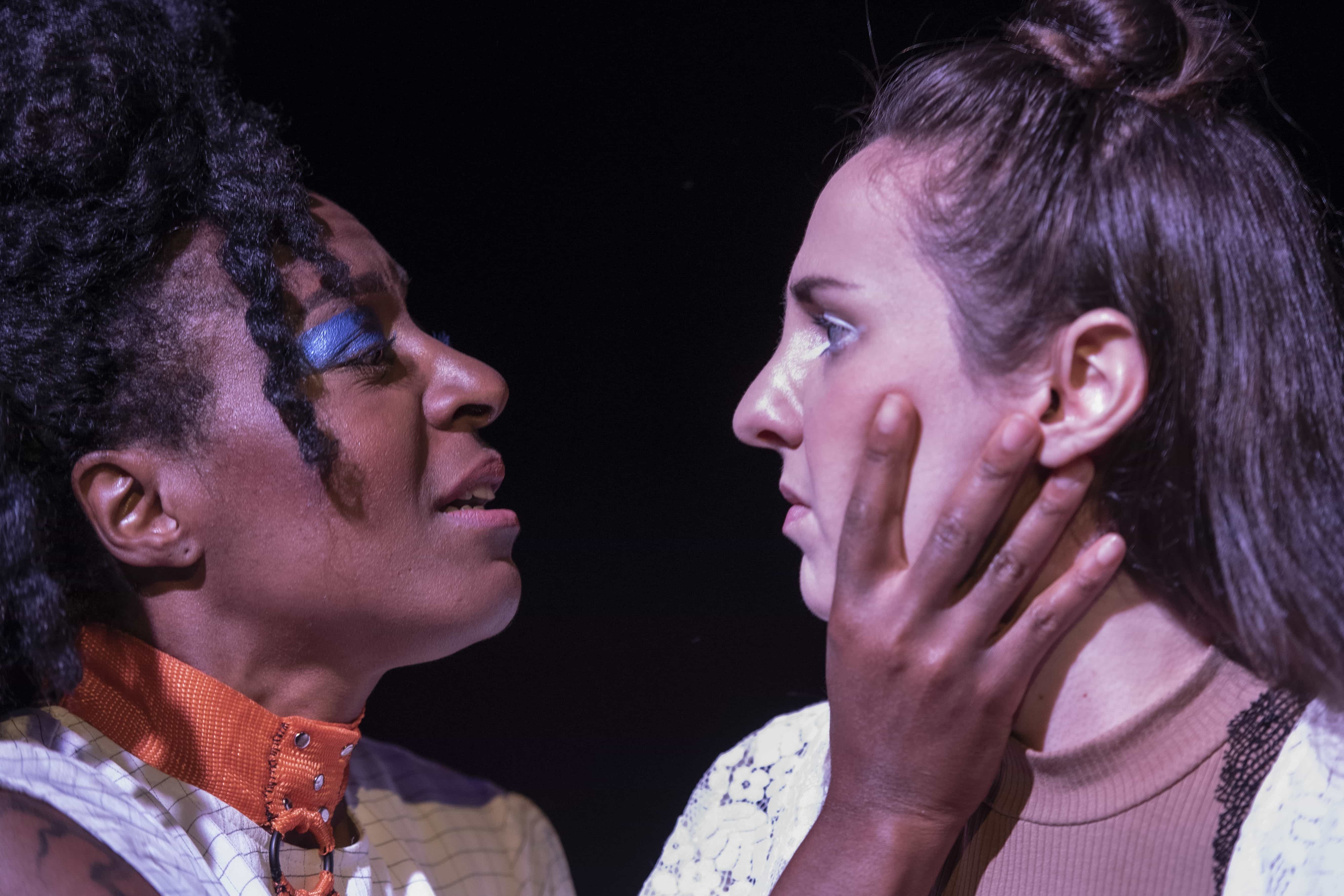Antiquity is in the house and what’s old is new again. Taffety Punk is presenting two short theater pieces featuring its signature integration of dance, drama, and music based on voices from Ancient Greece—in the first the Lesbian poet Sappho and in the second the Athenian tragedian Sophocles. Both pieces are set to eloquent contemporary texts in plain English crafted by the classicist and acclaimed poet Anne Carson.
The Fragments of Sappho
The double bill begins with a 25-minute theatricalization of Carson’s translation of fragments of lyric poems about the erotic by Sappho. There’s not much left of Sappho’s literary output: bits and pieces on papyrus, mentions by other writers, only one complete poem. But Taffety Punk has staged what remains—and filled in the gaps where words go missing with music, movement, and ingenuity.

The best instance was when Teresa Spencer delivered a poem whose missing matter had been replaced with silence. She would speak isolated words and phrases and in the lacunae it was like the audio cut off—except her mouth kept moving. Someone who could read lips would know what she was saying, because Spencer had composed her own complete poem, which she performed full of feeling, connecting emotional dots left ages ago by Sappho. The effect was transfixing.
Little wonder that Choreographer Katie C. Sopoci Drake and Director Marcus Kyd were inspired to fill in the blanks between text tidbits as enticing as these:
You came and I was crazy for you
and you cooled my mind that burned with longing
…
but I am not someone who likes to wound
rather I have a quiet mind
…
someone will remember us
I say
even in another time
What was Sappho meaning? What was she feeling? With whom? About whom? Taffety Punk has set out to surmise.

Drake was joined by four other dancers in lavender leggings and pink tops (Amanda Blythe, Safi Harriott, Katie Murphy, Erin White). Together and in solos and pairs, they sought Sapphic expression in a grandly gestural style reminiscent of Isadora Duncan and Martha Graham. At times the pace seemed more rushed than the ensemble could keep up with; one wished for more synchronicity and intentionality. Still, the lithe, lyrical, text-driven choreography accompanied by the raw growl of Kyd on bass and rimshots by Dan Crane on drums made for startling contrasts.
Among other imaginative finishes for Sappho’s ellipses was Esther Williamson singing an original song on a mic that went into echo amplification—as if resounding through time.
The sole surviving whole poem, delivered by Williamson, was a prayer to Aphrodite that ends, hauntingly: “Be my ally.” It was a touching tribute to a long-ago poet from Lesbos whose love and longing had been recollected with respect.
Antigonick
The heftier half of the bill was Taffety Punk’s staging of the one-act play Antigonick, translated by Carson from Sophocles’ Antigone, directed by Kelsey Mesa with choreography by Kelly King. It had some knockout moments.

The text begins with a cheeky translator’s note, intended to be performed, containing erudite references to analyses of Antigone by Hegel, Brecht, Judith Butler, et al. Here it is played back as a voiceover while Lilian Oben as a white-gowned, anguished Antigone goes like WTF and rolls her eyes. Instantly this much-studied character out of a distant dusty classic becomes real and relatable.
The piece is chock full of other contemporizing touches. To rave-like music, for instance, members of the Chorus bounce parkour-like off the walls. And an invented character in overalls named Nick (Katie Murphy) keeps going around measuring things, pulling down panels of scrim from the ceiling, and doing other puzzling stage business—until a surprise plot wrap-up at the end.
Amazingly in the midst of this delightfully hyperactive staging, the Sophoclean story comes through solidly and powerfully. In Oben’s deeply felt performance we get at gut level Antigone’s determination to give her dishonored dead brother a decent burial despite the petty edict of the king, and we get viscerally the tragic price Antigone pays for her loyalty and resistance.

The supporting cast is equally strong, particularly in the big confrontation scenes. The first is between Antigone and her sister, Ismene (Teresa Spencer), who tries to argue Antigone out of her recalcitrance (not gonna happen). Then there’s King Kreon (a deliciously dastardly Dan Crane) getting the Guard (an arrestingly emphatic Louis E. Davis) to rat out Antigone’s grave goings-on. And another is the excruciating tension between Kreon and his son Haimon (an earnestly impassioned Danny Puente Cackley), who intends to wed Antigone and detests his father for his mistreatment of her. At points such as these Carson’s script can get scathing, and this cast can bite off each trenchant mouthful and chillingly spit it back.
The Chorus interludes—often ponderous and awkward in modern times—are here handled with engaging verve. As the ensemble, Cackley, Davis, and Spencer are joined by Esther Williamson and Rachel Felstein. (Davis also impresses as Messenger, Spencer also has a nice cameo as Kreon’s aggrieved wife Eurydike, and Felstein—a standout in the Chorus—also has a fascinating turn as the blind seer Teiresias.) We know going in that Antigone’s death is foregone, but its staging—her metaphorical lifeline is literally severed—is breathtaking.
Credit Anne Carson for a script that bursts with language so alive it seems never to have been dead. And kudos to Taffety Punk for refreshing a classic and shaping such a satisfying show.
Design credits: Chris Curtis, light design; Jen Gillette, costume design; Marcus Kyd, sound design; Amy Kellett and Donna Reinhold, set and prop manifestation; Renee Beaver and Aaron Beaver, scenic artists.
Running Time: About 95 minutes, including one intermission
Antigonick and The Fragments of Sappho play through June 8, 2019, at Taffety Punk Theatre Company performing at Capitol Hill Arts Workshop – 545 7th Street SE, Washington, DC. For tickets, purchase them at the door or go online.





